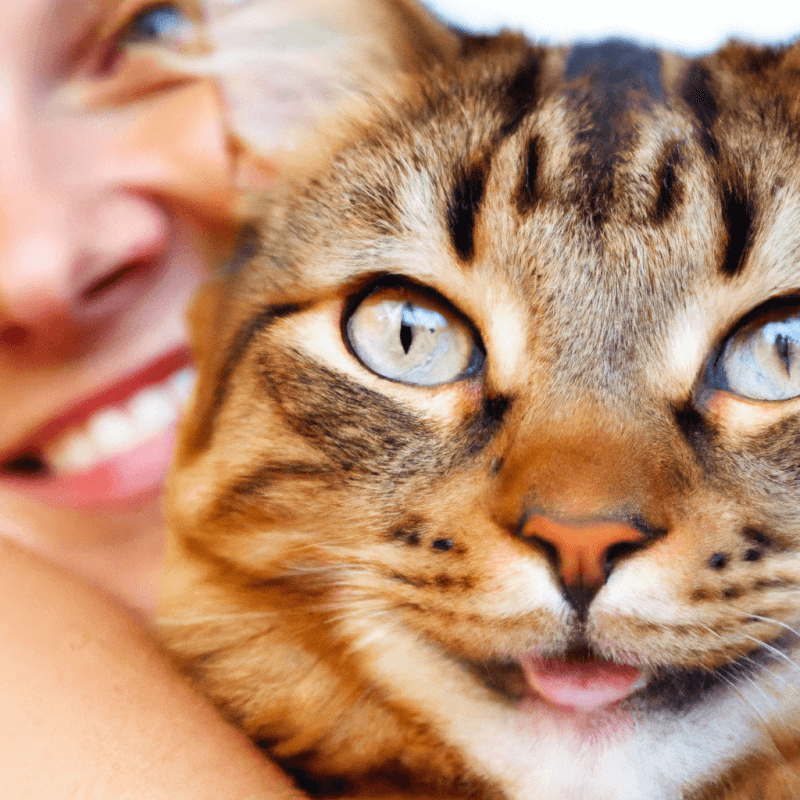Thinking about the future is important, especially when it comes to ensuring the well-being of our beloved pets. We all wish for them to be taken care of, even after we are no longer here. So, how can you include your furry friend in your will? Understanding the different options available and seeking professional advice can help you navigate this process with ease and peace of mind. By considering your pet’s needs and making appropriate arrangements, you can ensure that they will continue to receive the love and care they deserve even when you are no longer able to provide it yourself.

Decide on the Type of Pet Provision
When including your pet in your will, there are a few options to consider. One option is appointing a pet guardian, someone who will be responsible for the care of your pet if something were to happen to you. Another option is creating a pet trust, which allows you to set aside funds for your pet’s care. Lastly, you can choose a caregiver who will be responsible for taking care of your pet. Each option has different considerations and it’s important to carefully decide which one is best for you and your pet.
Ready for Cat Trivia?
Test your knowledge about cats!

Appointing a Pet Guardian
Appointing a pet guardian is an important decision to make when including your pet in your will. A pet guardian is someone who will take on the responsibility of caring for your pet if you are no longer able to do so. When choosing a pet guardian, it’s important to consider their abilities and lifestyle. You want to make sure that the person you choose can properly care for your pet and provide a loving and safe environment. It’s also essential to discuss your wishes with potential guardians and provide detailed instructions about your pet’s care and maintenance.
Creating a Pet Trust
Another option for including your pet in your will is to create a pet trust. A pet trust is a legal arrangement that allows you to set aside funds for your pet’s care. There are two types of pet trusts to consider – a testamentary pet trust and a traditional trust. A testamentary pet trust goes into effect upon your death, while a traditional trust can be established during your lifetime. When creating a pet trust, you will need to appoint a trustee who will be responsible for managing the funds and ensuring they are used for your pet’s care.
Choosing a Caregiver
Choosing a caregiver for your pet is another option to consider when including them in your will. This caregiver will be responsible for taking care of your pet if something were to happen to you. When choosing a caregiver, there are a few considerations to keep in mind. You may want to consider someone within your family who already has a close bond with your pet. Alternatively, you could consider a friend or neighbor who is familiar with your pet and willing to take on the responsibility. Another option is a professional pet care provider who can ensure your pet receives the care they need.

Finding the Right Pet Guardian
When deciding on a pet guardian, it’s important to consider the abilities and lifestyle of potential guardians. You want to choose someone who is capable of providing for your pet’s needs. Take into account their living situation, work schedule, and any other commitments they may have. Discussing your intentions with potential guardians is also essential. Make sure they are fully aware of what will be expected of them and that they are willing to take on the responsibility. Providing detailed instructions about your pet’s care and maintenance will also help ensure that your pet receives the same level of care they are accustomed to.
Creating a Pet Trust
If you decide to create a pet trust, it’s important to understand the differentiating features between a testamentary pet trust and a traditional trust. A testamentary pet trust goes into effect upon your death and is funded by assets from your estate. A traditional trust, on the other hand, can be established during your lifetime and can be funded with your own assets. When creating a pet trust, you will need to appoint a trustee who will be responsible for managing the funds and ensuring they are used for the care of your pet. Properly funding the trust is crucial to ensure that there are sufficient funds available to meet your pet’s needs.

Choosing a Caregiver
When choosing a caregiver for your pet, you have several options to consider. One option is to choose someone within your family who already has a close bond with your pet. This person may already be familiar with your pet’s routine and needs, making the transition easier for your pet. Another option is to choose a friend or neighbor who is willing to take on the responsibility of caring for your pet. It’s important to choose someone who is reliable and trustworthy. Finally, you can consider a professional pet care provider who has experience in caring for animals. They can ensure that your pet receives the necessary care and attention.
Important Considerations for Pet Inclusion
When including your pet in your will, there are a few important considerations to keep in mind. One consideration is the specific identification of your pet. Make sure to include details about your pet’s breed, name, age, and any distinguishing features. Another consideration is the allocation and funding for your pet’s care. It’s important to estimate the costs of pet care and determine an adequate amount to set aside for your pet’s needs. Finally, contingency planning and alternate provisions should be included in your will. This ensures that if your chosen guardian or caregiver is unable to fulfill their duties, there is a backup plan in place for your pet’s care.

Ensure the Validity of Your Will
In order to ensure that your pet inclusion in your will is valid, there are a few steps to take. First, make sure that your will meets the legal requirements of your jurisdiction. This may include having it properly witnessed and signed. It’s also important to consult with an attorney who specializes in estate planning to ensure that your will is legally binding and covers all necessary aspects. Finally, it’s crucial to regularly update your will to reflect any changes in your circumstances or the needs of your pet.
Discuss Your Pet’s Inclusion in Your Will
Once you have included your pet in your will, it’s important to inform potential guardians or caregivers of your wishes. Have a conversation with them, explaining your intentions and the responsibilities they will be taking on. It’s also essential to seek their approval and willingness to take on the role. This ensures that they are fully committed to caring for your pet and provides an opportunity for them to ask any questions or express any concerns. It’s also a good idea to update potential guardians or caregivers on a regular basis so they are kept informed of any changes or updates to your will.

Include a No-Contest Clause in the Will
To provide additional protection for your pet’s inclusion in your will, you may consider including a no-contest clause. A no-contest clause is a provision that disinherits anyone who challenges the validity or provisions of your will. By incorporating a no-contest clause, you can discourage any potential disputes that may arise and ensure that your wishes for your pet’s care are respected. To properly include a no-contest clause in your will, it’s important to consult with an attorney who can guide you through the process and ensure that it is properly worded and enforceable.
Provide Detailed Instructions for Your Pet’s Care
When including your pet in your will, it’s important to provide detailed instructions for their care. This includes their medical needs and any specific veterinary care they may require. Providing information about their daily routine and feeding instructions will help ensure a smooth transition for your pet. If your pet has any special dietary requirements or restrictions, make sure to include those as well. By providing detailed instructions, you can help ensure that your pet receives the same level of care and attention they are accustomed to.
Leave Sufficient Funds for Your Pet’s Care
One of the most crucial aspects of including your pet in your will is leaving sufficient funds for their care. It’s important to estimate the costs of pet care, including food, veterinary expenses, grooming, and any other necessary expenses. Take into account your pet’s age and any potential health issues that may arise. By determining an adequate amount to set aside for your pet’s care, you can ensure that their needs are met. It’s also important to consider how the funds will be protected and accessible. Consult with your attorney to determine the best way to set up and manage these funds.


